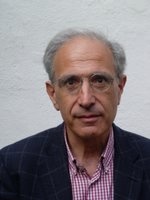Just Jerusalem: use your imagination to develop a solution for a conflict area
Just Jerusalem is a competition which aims to generate some possible solutions for the many difficult issues and hardships faced by Jerusalemites, regardless of their faith or ethnicity. It is being run by the Massachusetts Institute of Technology as part of their Jerusalem 2050 Project.
Why Jerusalem? Jerusalem holds special meaning across the world. It occupies a unique symbolic place in global politics, history, religion, and culture. Yet Jerusalem is also an arena of conflict over space, land, resources and sovereignty. It is probably the most serious and intractable area of conflict of our times. It raises questions such as… Which nation has a right to the land? How many states can claim the same territory as a capital? Can this small space ever be used in a peaceful and humane way?
Many scenarios for a solution have been proposed – a united Jerusalem as the capital of two states; a divided Jerusalem as two capitals for two states; Jerusalem as an international city; a united Jerusalem as the capital of one bi-national state; and a united Jerusalem as the capital of one state for one nation (exclusive of the other). Each solution has its champions, drawbacks and dissenters.
Jerusalem also faces resource scarcity, ecological degradation, deeply flawed urban design and geographically divided populations. Part is under occupation and those citizens face inequality, injustice and violence in their daily lives. Religiously, Jerusalem is central to the three monotheistic religions but is not equally accessible to all of them… and even then, some factions or sects claim preferential treatment over others.
For these reasons it is imperative that new and imaginative “solutions” for Jerusalem are created. And creating a vision for a future Jerusalem can be the first part of this process. And if we can find a solution to the problems of Jerusalem, we should also be able to find ways of resolving the problems of other conflict cities and regions.
What is your vision for a just, peaceful, and sustainable Jerusalem. Think about the following questions:
1. What will Jerusalem be in the future?
2. What is your Jerusalem in spatial, physical, symbolic or other terms?
3. Why is that your vision?
4. Under which political scenario do you see the future of Jerusalem:
- as capital of two states
- as capital of one state (which one?)
- as an international city
- some other status
The deadline for entries is 31 December 2007.
Vision in its literal sense is the faculty of sight or ability to see. Vision can also be understood to be intelligent foresight. In this competition participants are asked to capture their more creative insights and foresights, and to think about what cold be done to make the city “a just, peaceful and sustainable city defined by universal human values”.
http://web.mit.edu/justjerusalem
Peace Oil: Hilary Blume has come up with the idea for an olive oil produced by Jews, Arabs, Druze and Bedouin in Israel working together, and sold to generate profits for peace initiatives in the region. The oil is grown in the foothills of the Carmel Mountains. The olives are pressed within hours of picking. This could be the first of a range of “peace products” produced in war zones or by communities in conflict. www.peaceoil.org
Mobile Peace Monument: This is Andrew Gale idea for creating peace. The Mobile Monument will travel around the world, spending a year in a capital city. It will act like a Nobel Peace Prize, but given to countries to celebrate their contribution to peace and civil rights. His inspiration came from the Statue of Liberty, which was given to America by the French. If you would like to help Andrew achieve his vision, then contact him at andrew.gale1@virgin.net
Slim Peace: A new film coming to the Jewish Film Festival in London and the Tribeca Festival in New York, which charts the progress of slimmers from the different communities in the Palestine-Israel region. Go see it!


0 Comments:
Post a Comment
<< Home